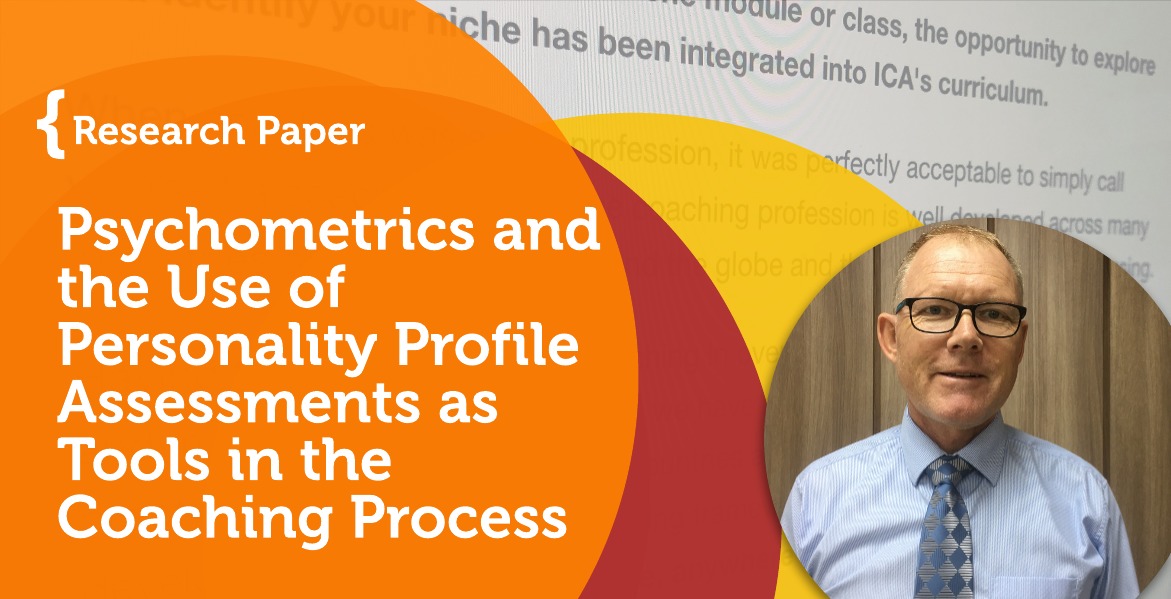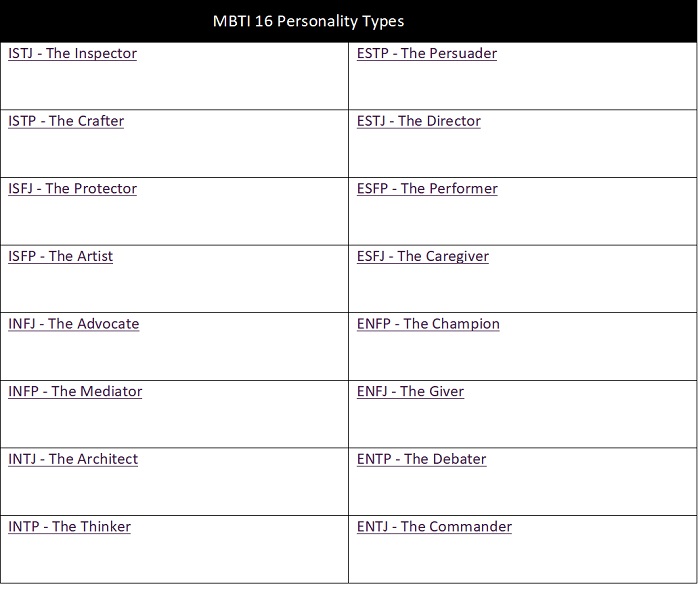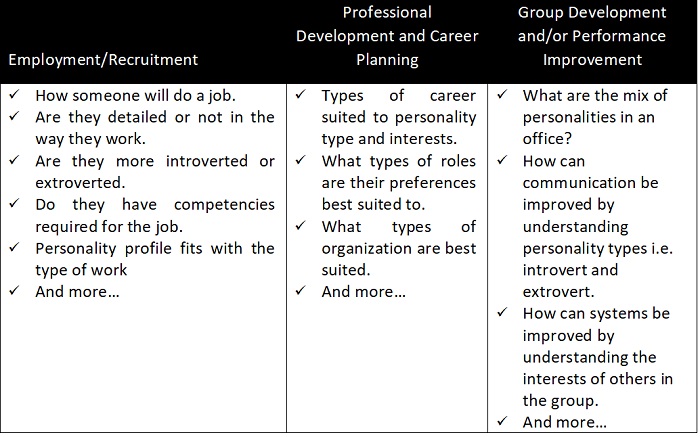 Research Paper By Robert Letchford
Research Paper By Robert Letchford
(Leadership and Org Development, MYANMAR)
Introduction
The development and professionalization of the coaching industry have slowly expanded over the last 20+ years to become recognized, by corporations and individuals alike as a valid way to improve individual and organizational capacity to perform at higher levels of productivity.
As the coaching industry has professionalized it has segmented into a variety of niche areas. For example, leadership, life, performance, motivation, health, and a variety of other niche coaching areas. With the development and proliferation of coaching service providers and/or individual coaches, so the use of psychometric testing has expanded to enhance the offerings that coaches have, which provide data or results that be used as inputs for coaching sessions.
The list of potential psychometric tests available for coaches to use with clients is extensive. Below is a shortlist of example psychometric tests, that include MBTI, which is a personality profile test:
NOTE: The list above is illustrative as there are potentially tens of different types of psychometric tests that can be used by coaches in consultation with their clients.
This research paper is interested in how, when, and where coaches can use psychometric tests that are designed to assist coaches and clients to understand a client’s personality and how that information might be used in individual and group coaching in the workplace.
Myers-Briggs – Foundation of Psychometric Testing for Personality Profiles
The Myers-Briggs Personality Type Indicator (MBTI) is a self-report inventory designed to identify a person’s personality type, strengths, and preferences. The questionnaire was developed by Isabel Myers and her mother Katherine Briggs based on their work with Carl Jung’s theory of personality types.
Based on the answers to the questions on the inventory, people are identified as having one of 16 personality types. The goal of the MBTI is to allow respondents to further explore and understand their own personalities including their likes, dislikes, strengths, weaknesses, possible career preferences, and compatibility with other people.
No one personality type is “best” or “better” than another. It isn’t a tool designed to look for dysfunction or abnormality. Instead, its goal is simply to help you learn more about yourself. The questionnaire itself is made up of four different scales as listed below.
Today, the MBTI inventory is one of the most widely used psychological instruments in the world and consists of 16 different personality types listed in Table 1.0 below:
Table 1.0: MBTI 16 Personality Types
 Personality Profile Assessments and Understanding Learning Styles
Personality Profile Assessments and Understanding Learning Styles
The use of personality profile assessments provides an opportunity for coach and client alike to learn about and/or classify cognitive learning and/or psychological types. There is a range of ways to classify learning styles drawing on a range of theories; for example, the VARK model[1] (Visual, Aural, Read/Write & Kinesthetic) that assists clients and coaches by suggesting appropriate learning styles for individuals, (Fleming & Mills, 1992) that can be utilized like the Myers Briggs (MBTI) psychological type theory based on Jung’s theory of psychological types.
MBTI instead of utilizing metrics like visual, aural, read/write, and kinesthetic (VARK) utilizes its own framework i.e. Extraversion (E) – Introversion (I), Sensing (S) – Intuition (N), Thinking (T) – Feeling (F); and, Judging (J) – Perceiving (P), which assists coaches and clients alike to understand individual interests, motivations and preferences as they relate to learning styles. For example, a theoretical client that is more introverted than extroverted may have a preferred learning style such as read/write, as opposed to an extrovert who may prefer to watch a video and/or receive some other external stimulation to promote their learning.
A coach needs to understand that personality type preferences may impact an individual’s motivation and interests as it relates to learning and studying, and the level of ease or difficulty that a particular person with a personality type may have when it comes to processing and/or recalling information. Thus, understanding personality type potentially has the potential to assist a coach and client in understanding the client’s learning preferences and how they help or hinder the individual’s and potentially group’s learning.
Application of Personality Profile Assessments
Personality assessments, sometimes known as personality questionnaires, inventories,s or profiles are part of the family of psychometric assessments available that coaches can use with clients and gives information about an individual’s personality preferences and qualities. Personality assessments can assist coaches and clients to better understand a variety of aspects of a person’s personality, preferences, and likely behavior.
Personality assessments can be used by coaches with clients in several ways as per Table 2.0 below:
Table 2.0: Uses for Personality Profiles
 Note: The list above is illustrative and there may be a variety of other uses for personality assessments.
Note: The list above is illustrative and there may be a variety of other uses for personality assessments.
A Workplace Research Case Study – Personality Assessments for Workplace Performance Improvement
An example of how psychometric testing using personality profiles can be used and have an impact at multiple levels (individual and group) in the workplace is described below, based on the use of personality profiles working with three (3) local staff in my office in Yangon, Myanmar. In the activity described below the psychometric test used was https://www.16personalities.com/free-personality-test, which is based on Myers Briggs.
Methodology
The methodology used for the workplace research case study was as follows:
- A discussion was held with three (3) staff members to explain how personality tests can be used for individual and group professional development. With staff member agreement they were then invited to complete a free personality assessment (https://www.16personalities.com/free-personality-test)
- The three (3) staff members shared the results of their personality tests with me.
- The three (3) staff members were encouraged to review their own personality test results.
- An individual 30-minute meeting was held with each staff member to discuss their personality profile results, what they might mean, how the staff member can use the results to become more aware of their own personality type, their preferences i.e. communication, strengths, weaknesses, etc.
- A group meeting was held for 60 minutes to discuss the results of staff member personality profiles. Each staff member shared their personality type and what they had learned about themselves (individual). A group discussion was then had to discuss what could be learned as a group from being aware of each other’s personality type and how these insights might be used to improve workplace performance (group).
Personality Profile Case Study
Soe, Aung, and Sung Sung[2] each completed their free personality profiles and received the following profile assessments:

Summary of Individual Team Member Learning
As a result of each team member completing their personality profiles and then discussing them with myself for 30 minutes (individually)[3] as their supervisor all three team members mentioned a range of learnings (new awareness) as follows:
Summary of Team Group Learning
As a result of a group meeting for 60 minutes with the three (3) team members after completing individual interviews described above the three team members identified ways that individual awareness of each others personality might be utilized to enhance team performance and/or productivity as follows:
Research Paper Conclusion
That there are a large variety of psychometric tests available in the marketplace that can be utilized by coaches when working with clients to facilitate impactful coaching sessions. In particular, there are a wide variety of personality profile assessments available, of which many are based on the work of Myers Briggs, which identifies 16 basic personality types. The 16 personality types are comprised of eight (8) different dimensions that include, Extraversion (E) – Introversion (I), Sensing (S) – Intuition (N), Thinking (T) – Feeling (F); and, Judging (J) – Perceiving (P).
As a coaching tool, a personality assessment can be utilized by a coach in partnership with individual team members and/or teams to build awareness of individual and group preferences i.e. communication, strengths, weaknesses, and identification of areas of potential improvement that can assist individuals and teams alike to become more aware of who they are and how they can support and/or enhance performance improvement in the workplace.
References:
- An Overview of the Myers-Briggs Type Indicator (MBTI), https://www.verywellmind.com/the-myers-briggs-type-indicator-2795583
- 16 personalities free personality profile test, https://www.16personalities.com/free-personality-test
- Insights Discovery, https://www.insights.com/
- Learning Styles of the 16 Personality Types, http://www.humanmetrics.com/personality/learning-styles
- VARK (Visual, Aural, Read/Write and Kinesthetic), https://vark-learn.com/the-vark-questionnaire/
[1] VARK is another type of psychometric test focused on understanding a person’s learning style as it relates to the use of the VARK model.
[2] Real names changed to protect the identity of staff members.
[3]30-minute interviews and group meetings all held December 2, 2020.